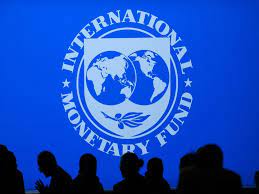Islamabad, Aug 30: Pakistan has secured a much-needed bailout package from the IMF, which will help the cash-starved country avert an imminent default, amidst the persisting political uncertainty and the devastating floods that has displaced over 33 million people.
The international lender approved the 7th and 8th tranche of USD 1.17 billion for Pakistan at an executive meeting in Washington on Monday.
Finance Minister Miftah Ismail said the International Monetary Fund’s Board has approved the revival of Pakistan’s Extended Fund Facility (EFF) programme.
“We should now be getting the 7th & 8th tranche of USD 1.17 billion. I want to thank the Prime Minister @CMShehbaz for taking so many tough decisions and saving Pakistan from default. I congratulate the nation,” tweeted Ismail, who had left no stone unturned to fulfill the hefty demands of the donor.
“The formal resumption of an IMF programme is a major step forward in our efforts to put Pakistan’s economy back on track. It is the outcome of an excellent team effort. I commend Finance Minister Miftah Ismail & his team and other stakeholders for their hard work,” Prime Minister Shehbaz Sharif said in a tweet.
In a statement, the IMF announced that the executive board completed the combined seventh and eighth reviews of the “extended arrangement” under the EFF for Pakistan.
“The board’s decision allows for an immediate disbursement of SDR 894 million (about USD 1.1 billion), bringing total purchases for budget support under the arrangement to about USD 3.9 billion,” it said.
It added that in order to support programme implementation and meet the higher financing needs in FY23, as well as “catalyse additional financing, the IMF Board approved an extension of the EFF until end-June 2023, rephasing and augmentation of access by SDR 720 million that will bring the total access under the EFF to about USD 6.5 billion.”
Pakistan and the IMF had signed the USD 6 billion deal in July 2019 but the programme was derailed in January 2020 and restored briefly in March last year before again going off the track in June.
The present government led by Prime Minister Sharif which assumed power in April this year after toppling Imran Khan’s government began an effort to revive the programme.
The global lender has also approved to increase the loan size to around USD 7 billion and extend it till June 2023.
“Pakistan is at a challenging economic juncture,” the IMF said in a statement.
“A difficult external environment combined with procyclical domestic policies fueled domestic demand to unsustainable levels. The resultant economic overheating led to large fiscal and external deficits in FY22, contributed to rising inflation, and eroded reserve buffers,” it said.
The programme seeks to address domestic and external imbalances, and ensure fiscal discipline and debt sustainability while protecting social spending, safeguarding monetary and financial stability, and maintaining a market-determined exchange rate and rebuilding external buffers, the statement said.
The IMF’s formal approval follows the completion of the USD 4 billion in bilateral financing from four friendly nations, including China and Saudi Arabia, and would pave the way for immediate disbursement of the loan.
The IMF board meeting was convened after Saudi Arabia, the United Arab Emirates, Qatar and China confirmed to the IMF that they had completed arrangements for USD 4 billion in bilateral financing to Pakistan, which was the last hitch to the bailout package after completion of all the prior actions agreed under the SLA.
The IMF board’s clearance is expected to reverse continuously depleting foreign exchange reserves, strengthen the Pakistani rupee and support the balance of payments.
Ahead of the IMF board meeting, Prime Minister Sharif on Sunday accused ousted premier Khan’s Pakistan Tehreek-e-Insaf party of trying to sabotage the deal with the IMF, asserting that “self-centred politics” will cause huge injustice to the country.
Since Khan’s ouster in April, Pakistan’s currency has plummeted to an all-time low of Rs 240, amid uncertainty about IMF assistance.
Earlier this month, New York-based rating agency S&P Global revised Pakistan’s long-term ratings from ‘stable’ to ‘negative’ given the spiralling inflation and tighter global financial conditions. (PTI)
Trending Now
E-Paper


